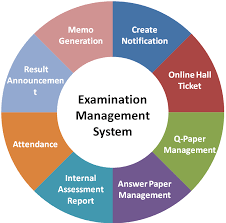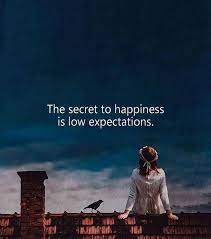Dr. Nazir Ahmad Gilkar
 To sustain an innovative practice, the 4th post ESE-Workshop on Examinations and Evaluation Reforms was held on November 2, 2015 at Central University of Kashmir. Through this platform faculty of the university got an opportunity to share mutual experiences and thoughts. The workshop spread over four micro-presentations, activity based and open-house sessions.
To sustain an innovative practice, the 4th post ESE-Workshop on Examinations and Evaluation Reforms was held on November 2, 2015 at Central University of Kashmir. Through this platform faculty of the university got an opportunity to share mutual experiences and thoughts. The workshop spread over four micro-presentations, activity based and open-house sessions.
The Vice Chancellor of University of Kashmir Prof Khurshid Iqbal Anrabi, in his inaugural address called for complete revamping of examinations and evaluation system in higher education sector. Vice Chancellor of Central University of Kashmir Prof Mehraj-ud-Din Mir, in his presidential address said that personal likes and dislikes of evaluators influence evaluation of answer scripts. This needs to be researched thoroughly as it may affect career of students. The guest faculty Prof. Khurshid A Butt, while speaking on the occasion said that our examination and evaluation system has always been neglected by academics. Despite rapid changes in curriculum the examination and evaluation haven’t undergone any change to result in lopsided performance. The Registrar of Central University of Kashmir Prof M A Zarger, in his welcome address gave a detailed account of examinations and evaluation system operational at CUK. He referred to choice based credit system (CBCS) being adopted by the University. While presenting vote of thanks Dr Nazir A Gilkar CoE said that teaching-learning process and examinations system are interdependent. Special session was started with a welcome note by the facilitator Dr. Sheikh Showkat Hussain. The session was jointly chaired by Prof. M. Aslam, Dean School of Languages and Prof. S Fayyaz Ahmad, Dean Media Studies.
Prof. KA Butt raised various issues concerning question paper setting. He made some question marks on quality parameters in setting and assessment of a question paper. Question papers lack coordination in terms of word limit, time allotted and level of scholarship. He advocated that teachers should be serious while setting question papers and evaluating answer scripts and should not be influenced by the mood of concerned paper setter and evaluator. The question paper may be objective in nature so that unbiased evaluation will take place. He also advocated that there should be multiple paper setters and evaluators to minimise errors and delay in declaring results. Prof. Khurshid also raised some issues regarding the conduct of examinations. He discussed that our present examination system is centralised and it should be decentralised to concerned teacher level. He argued in support of teacher-controlled system. We must switchover to online examination, black board operations and online results.
Continuous and Comprehensive Evaluation (CCE) is the need of the hour which takes care of gifted, average and slow learners at a time. In CCA, a teacher is not limited to theoretical question paper only but he links his evaluation to tests, assignments, presentations, project work, games and role playing. A concerned teacher should also make some informal arrangements to test different capabilities of a student. Our focus should be on incremental based knowledge enhancement, life skills development and other co-scholastic areas of students.
Some issues regarding the transparency of student appeal have also been raised during the presentation. The transparency of student appeals sans a comprehensive mechanism for individual or centralised appeals. It is need of hour to bring about full and high transparency to student appeals as the entire education system at any level revolves around student and student grievances should be readdressed with great student satisfaction. The presentation ended with detailed and interesting discussion during which valued questions were raised by the faculty members of the University. A volley of questions were asked by the audience and satisfactorily responded by the presenters during the interactive session. The session chairmen commented upon all the presentations.
It was resolved that workshop activity exercises as regard to question paper setting and expected answers will be taken at the respective school level before the commencement of ESE-December 2015 and proceedings will be shared for improvement in performance at the university level.
Recommendations
- I) Replacing very short answer questions by Multiple Choice Questions (MCQs); (II) Engaging industry/other agencies in project report evaluation ensuring double evaluation; (III) Adopting skill-research based model in project construction; (IV) Switching over to direct grading gradually; (V) Utilizing credit analysis in teaching work load assessment. (VI) Encouraging student feedback to be a part of examinations-evaluation policy formulation; (VII) Blending knowledge with a befitting skill-set and evaluation thereof; (VIII) Redressing examinees grievances with due regard to their appeals and satisfaction; (IX) Revamping examination system to assess intrinsic academic attainment of students in real terms; (X) Facilitating students study beyond prescribed syllabi with a view to improve their knowledge content.
The author can be mailed at gilkarna@rediffmail.com





